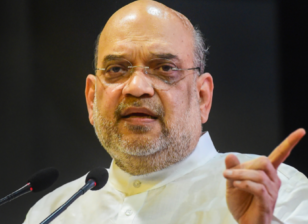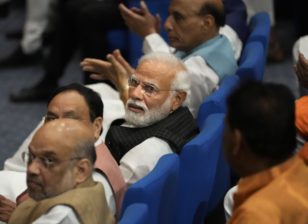Freedom House : Democracy under Siege.
As a lethal pandemic, economic and physical insecurity, and violent conflict ravaged the world in 2020, democracy’s defenders sustained heavy new losses in their struggle against authoritarian foes, shifting the international balance in favor of tyranny. Incumbent leaders increasingly used force to crush opponents and settle scores, sometimes in the name of public health, while beleaguered activists—lacking effective international support—faced heavy jail sentences, torture, or murder in many settings.
These withering blows marked the 15th consecutive year of decline in global freedom. The countries experiencing deterioration outnumbered those with improvements by the largest margin recorded since the negative trend began in 2006. The long democratic recession is deepening.
The impact of the long-term democratic decline has become increasingly global in nature, broad enough to be felt by those living under the cruelest dictatorships, as well as by citizens of long-standing democracies. Nearly 75 percent of the world’s population lived in a country that faced deterioration last year. The ongoing decline has given rise to claims of democracy’s inherent inferiority. Proponents of this idea include official Chinese and Russian commentators seeking to strengthen their international influence while escaping accountability for abuses, as well as antidemocratic actors within democratic states who see an opportunity to consolidate power. They are both cheering the breakdown of democracy and exacerbating it, pitting themselves against the brave groups and individuals who have set out to reverse the damage.
The malign influence of the regime in China, the world’s most populous dictatorship, was especially profound in 2020. Beijing ramped up its global disinformation and censorship campaign to counter the fallout from its cover-up of the initial coronavirus outbreak, which severely hampered a rapid global response in the pandemic’s early days. Its efforts also featured increased meddling in the domestic political discourse of foreign democracies, transnational extensions of rights abuses common in mainland China, and the demolition of Hong Kong’s liberties and legal autonomy. Meanwhile, the Chinese regime has gained clout in multilateral institutions such as the UN Human Rights Council, which the United States abandoned in 2018, as Beijing pushed a vision of so-called noninterference that allows abuses of democratic principles and human rights standards to go unpunished while the formation of autocratic alliances is promoted.
As COVID-19 spread during the year, governments across the democratic spectrum repeatedly resorted to excessive surveillance, discriminatory restrictions on freedoms like movement and assembly, and arbitrary or violent enforcement of such restrictions by police and nonstate actors. Waves of false and misleading information, generated deliberately by political leaders in some cases, flooded many countries’ communication systems, obscuring reliable data and jeopardizing lives. While most countries with stronger democratic institutions ensured that any restrictions on liberty were necessary and proportionate to the threat posed by the virus, a number of their peers pursued clumsy or ill-informed strategies, and dictators from Venezuela to Cambodia exploited the crisis to quash opposition and fortify their power
Read More: Click Here




